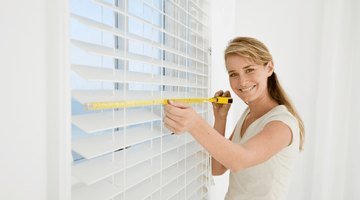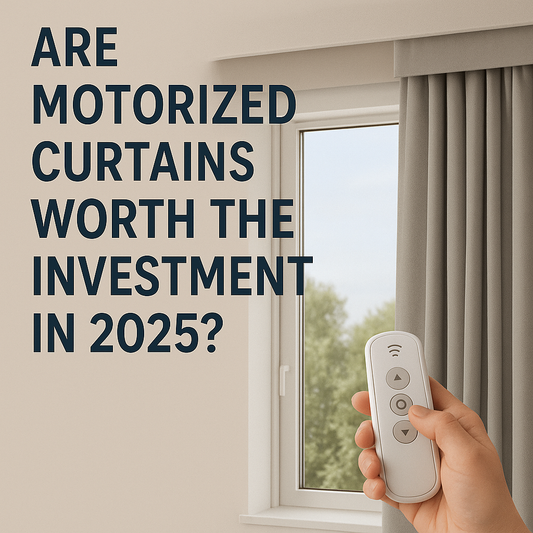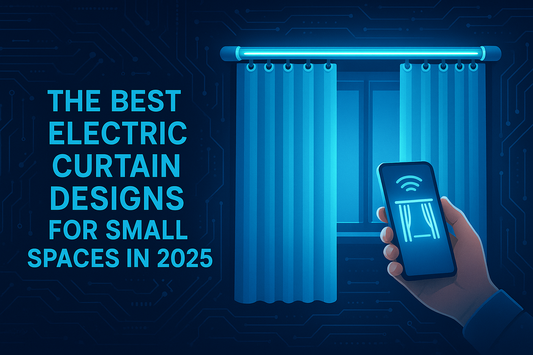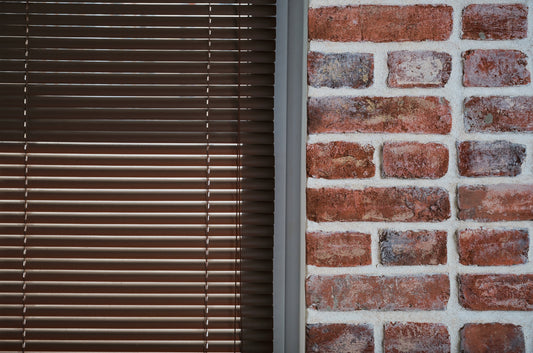Light Filtering Shades Vs. Blackout: Which One Should I Pick?
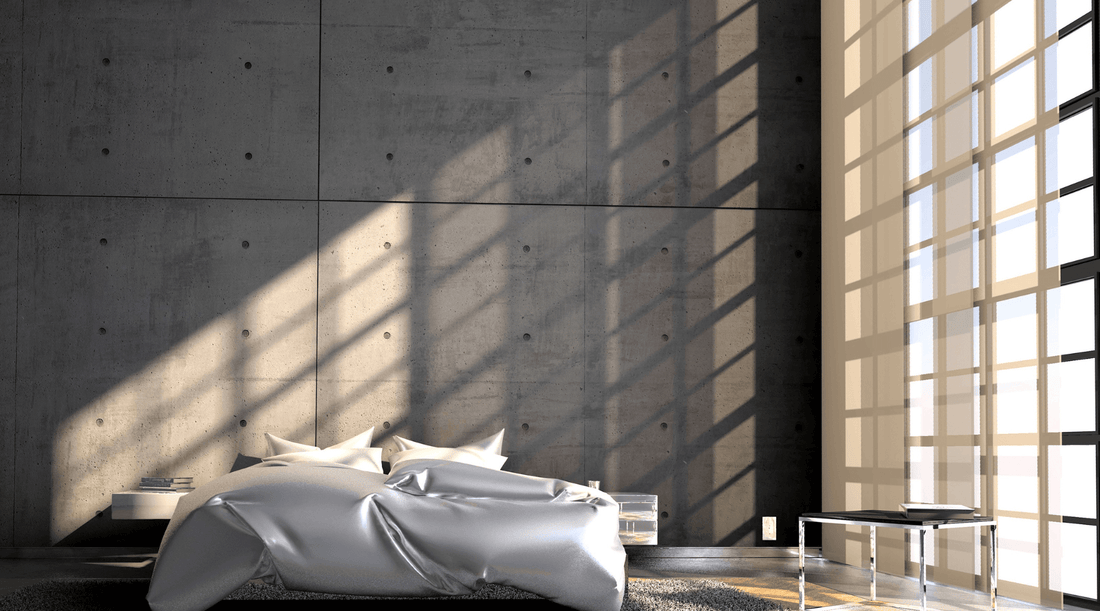
If you are looking for new window treatments to accompany your home’s décor and transform your space, you’ve probably thought about room darkening vs. blackout shades options. Although they are both effective ways to reduce light exposure and increase privacy, they serve different functions. Picking the right window treatments might seem easy, but you want to be sure your choice will serve your purpose and look good with your home décor. Keep reading to know how to select the right window blinds for you.
What Is Blackout Shade?
Blackout shades are window treatments designed to almost or totally block light coming in through a window. They provide complete privacy, making them perfect for home theaters, bedrooms, nurseries or rooms with light-sensitive items like artwork. Blackout shades are usually made of double-lined, tightly woven fabrics, which help to ensure complete darkness. To achieve a complete blackout effect, blackout shades usually fit tightly to the window to minimize gaps and prevent light from peeking through. Blackout window treatments come in a wide range of styles, including Roman, honeycomb, roller and solar.
What Is Light Filtering Shade?
Light filtering shades are window treatments that allow you to control the amount of light that enters and illuminates a room. They typically consist of an opaque or translucent material that diffuses light more softly through your windows or door, giving the room a soft, warm glow. The idea is to soften the light through the window rather than block it completely. They are incredibly versatile as they exist in different colors, fabrics and patterns.
What Is Room Darkening Shade?
Room darkening shades perform a function similar to blackout shades in that they’re designed to block out light, but the difference is that they don’t completely prevent light but instead deliver a darkening effect. In other words, window-darkening blinds make rooms dim, not pitch black. Room darkening shades are the perfect solution if you want to minimize glare, increase the comfort level and make it easier to view the computer and TV screen. They are available in different styles, including roller blinds, dual-layer zebra blinds, shangri-la, honeycomb, and roman shades.
Differences Between Light Filtering Vs. Room Darkening
Deciding which is right for you between light filtering vs. room darkening can be overwhelming, but knowing their pros and cons can help you make an informed decision.

Light filtering blinds
Light-filtering blinds and shades are a great way of regulating the amount of light that comes into a room. Here are the pros and cons.
Pros
- Light filtering blinds create a cozy and comfortable environment by softening the light coming into the room.
- They allow for easy ventilation in the room, making them perfect for spring weather.
- Light filtering blinds are lightweight, making them easy to draw open or close.
- Since they don’t darken the room completely, you won’t have to use electric light sources.
- Light filtering blinds can be used to complement existing drapes or shades.
Cons
- They do not provide the maximum level of privacy like darkening shades or curtains.
- They cannot totally block out light to a room, which makes them unsuitable for bedrooms and home theatres.
Room Darkening Blinds
Room darkening shades provide total or high-level light blockage. Here are the pros and cons.
Pros
- They help create a cozy and comfortable sleeping environment, making them great for bedrooms and nurseries.
- Room darkening shades help block out excess light and prevent the room from getting warm because of heat gain.
- They contribute to helping keep your space cool, so you don’t have to run your HVAC system often.
- Room darkening blinds help reduce glare on the TV or computer screen.
- They help enhance the privacy and security of your home.
- Room darkening shades help protect the floors and furniture from sun damage.
Cons
- You might need electric light sources to see well.
Light filtering and blackout shades FAQs
What Rooms Can I Apply?
Light filtering shades are great for kitchens, living rooms, offices and other public areas, while blackout shades are perfect for bedrooms, nurseries and home theatres.
Can You See Through Light Filtering Shades?
Light filtering shades are designed to allow natural light while obstructing outside views, thus ensuring privacy.
Between Solar Shades Vs. Light Filtering, Which Blocks More Heat?
Both solar shades and light filtering shades provide privacy, but if you want to block as much solar heat as possible, solar shades are perfect for you.
Do Light Filtering Shades Block Glare?
Light filtering shades reduce glare, but if you want to almost or totally eliminate glare, room darkening shades are the recommended option.
What Are Blackout Shades?
These are window treatments that block out light completely. They are tightly fitted to the window to prevent light from leaking in.
What Are Window-Darkening Blinds?
These blinds block out almost all the natural light that comes in. They dim the room rather than make it pitch dark.
What Are Light Filtering Shades?
These shades allow plenty of light into a room while transforming the harsh sunlight into a soft, warm glow.
Final Verdict
Now that you know the difference between room darkening vs. blackout, as well as light filtering vs. room darkening, it is easier for you to make a choice. If you still feel uncertain about what you want, get in touch with us, and we will help you make the right choice. Whether you are looking for light filtering, room darkening or blackout shades, our experts at Go Smart Blinds are ready to listen to your vision and help you realize your dream window treatment. You can also learn more about measuring blinds and shades by clicking here.










